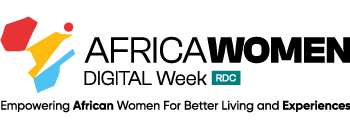Sécurité Numérique au Congo : Protégez-vous Contre les Cybercriminels
Le monde numérique offre d’innombrables opportunités pour l’apprentissage, la communication et le développement personnel. Cependant, il présente également des risques significatifs, en particulier pour les jeunes femmes et filles qui peuvent être vulnérables aux cybercriminels. Au Congo, de nombreux cas ont émergé où des jeunes femmes, croyant à l’amour en ligne, ont envoyé des photos et vidéos intimes à des pirates ou à des personnes se faisant passer pour des prétendants amoureux. Ce phénomène est de plus en plus fréquent et inquiétant.
La Situation au Congo
Le Congo, comme de nombreux autres pays africains, connaît une croissance rapide de l’utilisation d’Internet. Cependant, cette augmentation de l’accès au numérique n’est pas accompagnée d’une éducation adéquate sur les dangers potentiels en ligne. En conséquence, de nombreuses jeunes femmes tombent victimes de cybercriminels qui exploitent leur naïveté et leur confiance.
Selon un rapport de l’International Telecommunication Union (ITU), plus de 40% des utilisateurs d’Internet en Afrique ont été victimes de cybercriminalité à un moment donné. Au Congo, les chiffres sont alarmants. Des études locales montrent que les jeunes femmes, en particulier, sont ciblées par des arnaqueurs en ligne qui utilisent des tactiques de manipulation émotionnelle pour obtenir des contenus sensibles qu’ils utilisent ensuite pour l’extorsion ou la honte publique.
Cas Fréquents
L’un des cas les plus courants implique des cybercriminels se faisant passer pour des prétendants amoureux. Ces criminels établissent une relation de confiance avec leurs victimes, souvent via les réseaux sociaux, et les persuadent d’envoyer des photos ou des vidéos intimes. Une fois ces contenus obtenus, les cybercriminels menacent de les publier en ligne si leurs demandes (souvent financières) ne sont pas satisfaites.
Un autre cas fréquent est celui des escroqueries par e-mail où les victimes reçoivent des messages prétendant venir de sources fiables (comme des banques ou des amis) demandant des informations personnelles ou des paiements. Ces escroqueries peuvent entraîner des pertes financières significatives et une violation de la vie privée.

Comment DigitRise Africa Intervient
Chez DigitRise Africa, nous reconnaissons l’urgence de ce problème et nous sommes engagés à le combattre par l’éducation et la sensibilisation. Nos initiatives, telles qu’AFROWOMEN™ In Digital et Africa Women Digital Week, visent à éduquer et autonomiser les femmes et les jeunes filles pour qu’elles puissent naviguer en toute sécurité sur le web. Voici comment nous procédons :
- Formation en Cybersécurité : Nous offrons des cours détaillés sur les meilleures pratiques en matière de sécurité en ligne, y compris comment reconnaître et éviter les arnaques, protéger ses informations personnelles et utiliser des outils de sécurité tels que l’authentification à deux facteurs.
- Ateliers et Séminaires : Organisés régulièrement, nos ateliers couvrent des sujets tels que la sécurité des réseaux sociaux, la protection contre les logiciels malveillants et les mesures à prendre en cas de cyberattaque.
- Support et Conseils : Nous fournissons un support continu et des conseils personnalisés à ceux qui ont été victimes de cybercriminalité, les aidant à comprendre leurs droits et les étapes à suivre pour se protéger.
- Campagnes de Sensibilisation : Par le biais de campagnes sur les réseaux sociaux et d’événements communautaires, nous sensibilisons le public aux dangers du cyberespace et aux mesures préventives.

Conseils pour se Protéger Contre les Cybercriminels
1. Ne Partagez Jamais de Contenus Intimes en Ligne : Peu importe à quel point vous faites confiance à quelqu’un, évitez de partager des photos ou des vidéos sensibles en ligne. Une fois partagés, ils échappent à votre contrôle.
2. Utilisez des Mots de Passe Forts : Créez des mots de passe complexes et uniques pour chacun de vos comptes. Utilisez des combinaisons de lettres majuscules et minuscules, de chiffres et de symboles.
3. Activez l’Authentification à Deux Facteurs : Cette couche supplémentaire de sécurité peut empêcher les pirates d’accéder à vos comptes même s’ils obtiennent votre mot de passe.
4. Méfiez-vous des Inconnus : Ne partagez jamais d’informations personnelles avec des personnes que vous ne connaissez que virtuellement. Les cybercriminels utilisent souvent des fausses identités pour gagner votre confiance.
5. Éduquez-vous et Éduquez les Autres : Participez à des formations en cybersécurité et partagez vos connaissances avec votre entourage. La sensibilisation est la première ligne de défense contre la cybercriminalité.
6. Signalez les Activités Suspectes : Si vous recevez des messages suspects ou si vous êtes victime de cybercriminalité, signalez-le immédiatement aux autorités compétentes et aux plateformes concernées.
Conclusion
La cybersécurité est une priorité absolue dans notre société de plus en plus numérique. En éduquant et en sensibilisant les jeunes femmes et filles au Congo, nous pouvons réduire considérablement le nombre de victimes de cybercriminalité. Chez DigitRise Africa, nous sommes déterminés à créer un environnement numérique plus sûr pour tous. Joignez-vous à nous lors de l’Africa Women Digital Week et engageons-nous ensemble à protéger notre communauté contre les cybercriminels. Ensemble, nous pouvons faire une différence.

























